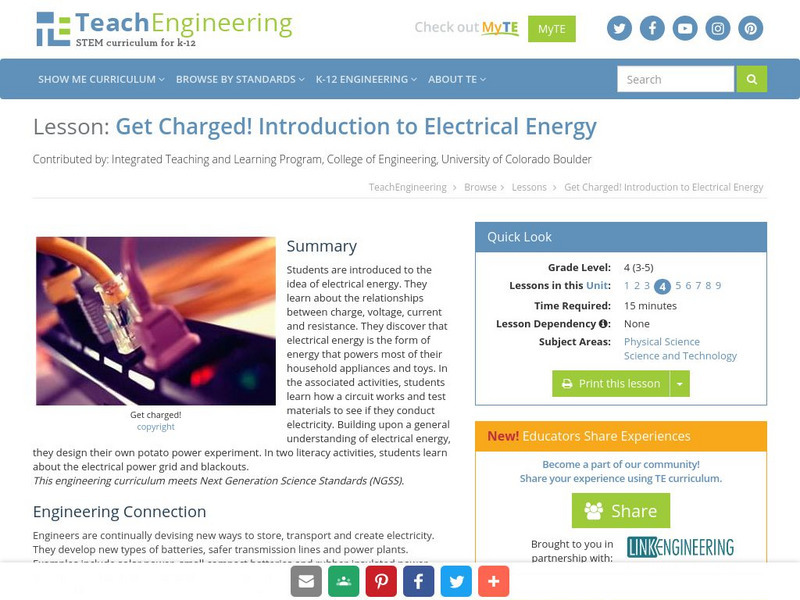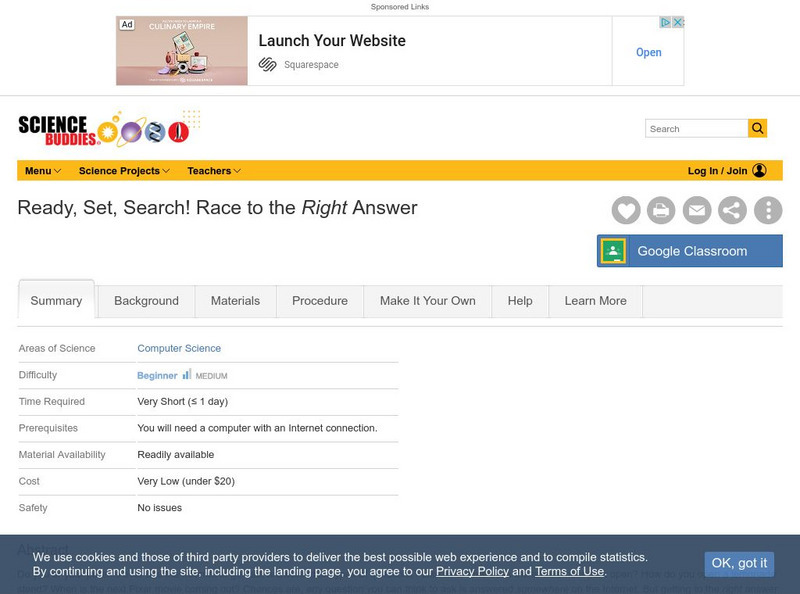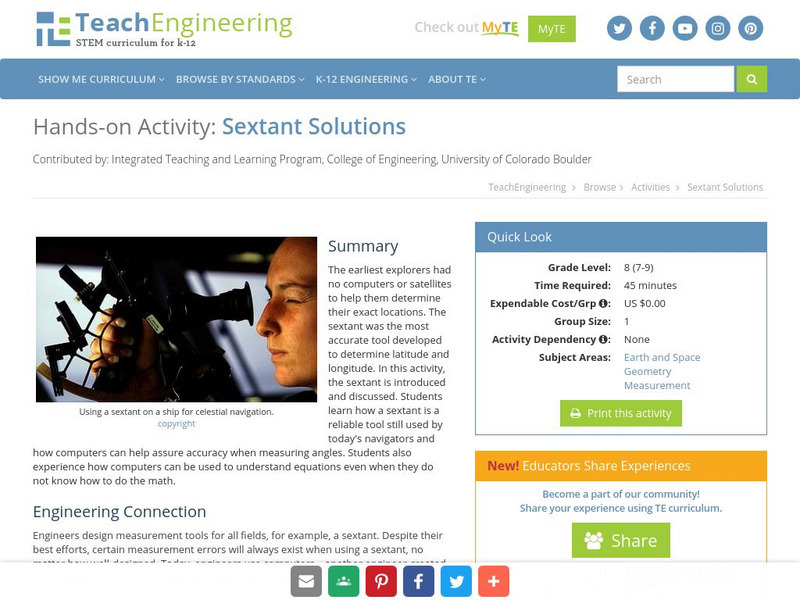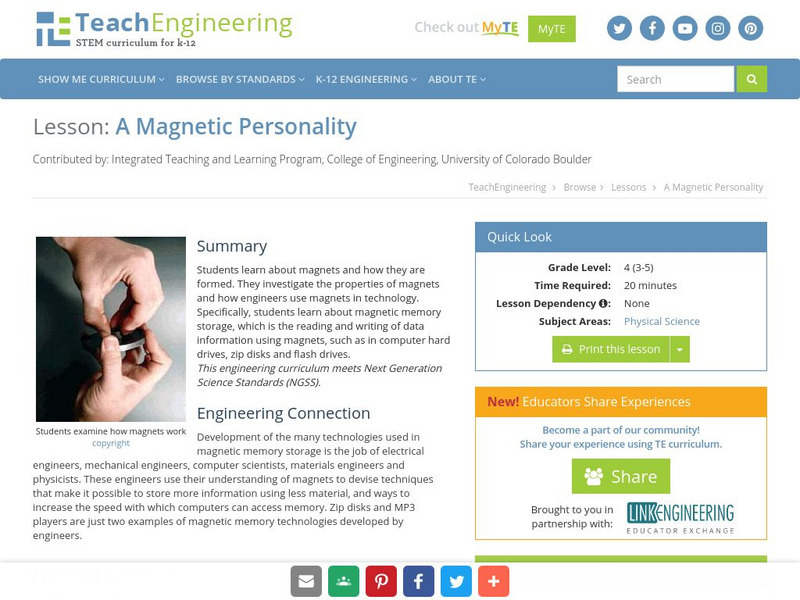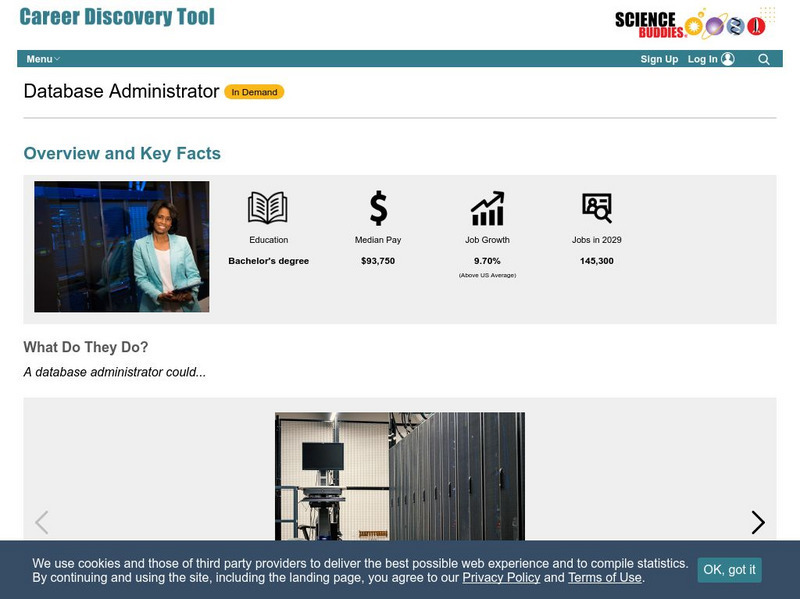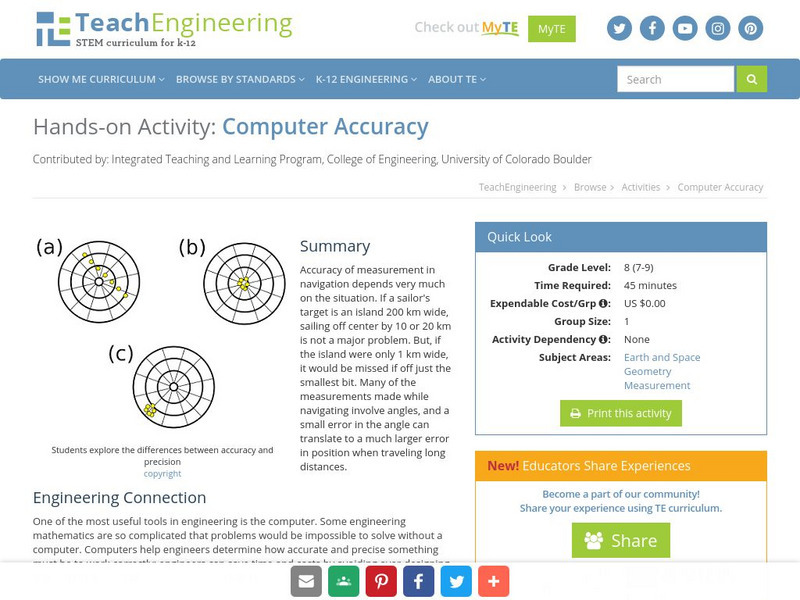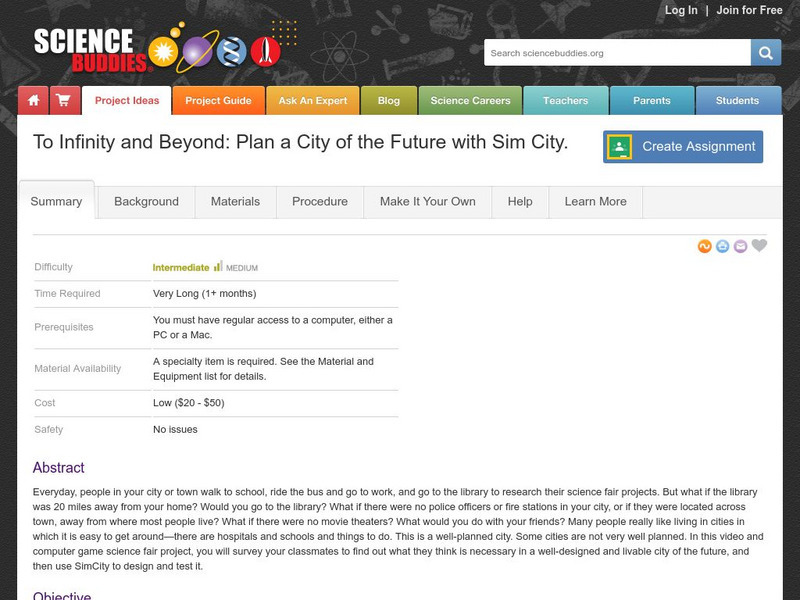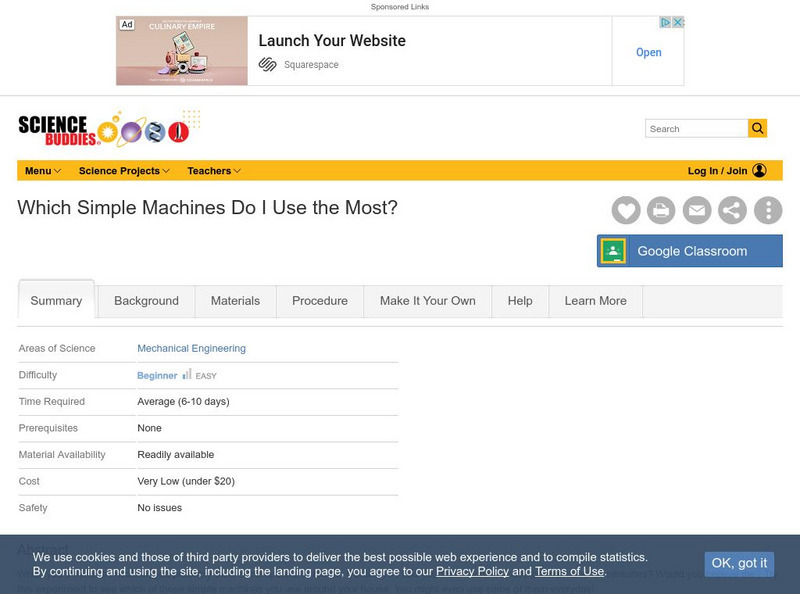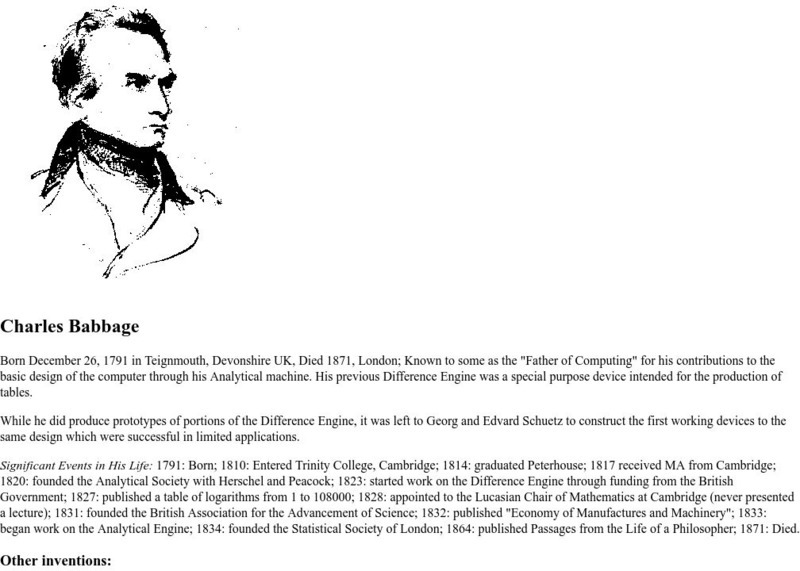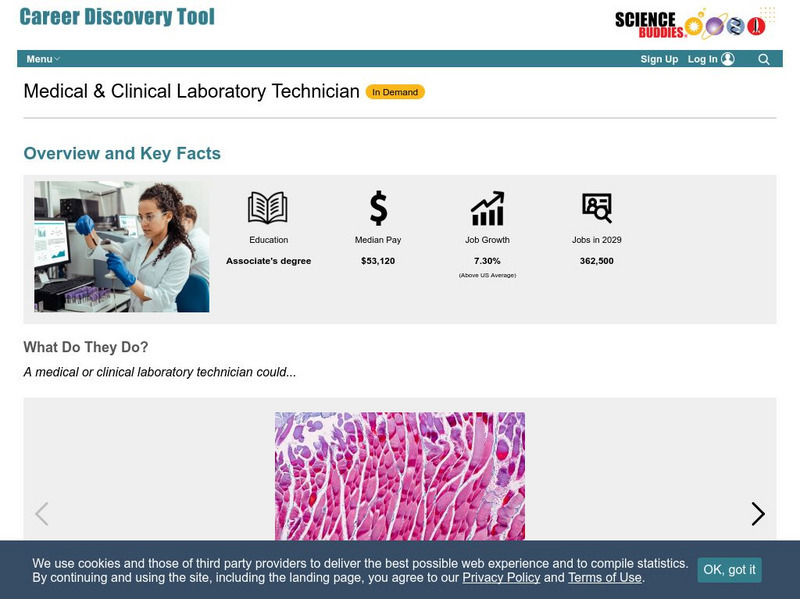Google Cultural Institute
Google Cultural Institute: Women in Science, Technology, Engineering, and Math
Explore the historic reasons women are underrepresented in science, technology, engineering, and mathematics today.
Other
Graduating Engineer and Computer Careers Magazine: Structural Engineering
Structural engineering is a branch of civil engineering, and its applications are extremely diverse. A career as a structural engineer is profiled .. education, salary, job description .. are included.
TeachEngineering
Teach Engineering: Wow! That Captures It!
Students learn how motion capture (mo-cap) technology enables computer animators to create realistic effects. They learn the importance of center of gravity in animation and how to use the concept of center of gravity in writing an...
TeachEngineering
Teach Engineering: Get Charged!
Students are introduced to the idea of electrical energy. They learn about the relationships between charge, voltage, current and resistance. They discover that electrical energy is the form of energy that powers most of their household...
TeachEngineering
Teach Engineering: Strong Arm Tactics
Students generally do not know the complexity that goes into building and programming a robotic arm. In actuality, creating such an arm comes from a design that involves mechanical, electrical, and computer science engineers. This...
Science Buddies
Science Buddies: Getting More Out of Less : Google Hits and Search Terms
Google is the name of the most often used search engine on the Internet. "Googol" is the mathematical term for a 1 followed by 100 zeros. It's a very large number. This experiment will help you test different search terms and find out.
TeachEngineering
Teach Engineering: Sextant Solutions
The earliest explorers did not have computers or satellites to help them know their exact location. The most accurate tool developed was the sextant to determine latitude and longitude. In this activity, the sextant is introduced and...
TeachEngineering
Teach Engineering: Getting It Right!
In this instructional activity, middle schoolers will investigate error. As shown in earlier activities from navigation lessons 1 through 3, without an understanding of how errors can affect your position, you cannot navigate well....
TeachEngineering
Teach Engineering: A Magnetic Personality
Students learn about magnets and how they are formed. They investigate the properties of magnets and how engineers use magnets in technology. Specifically, students learn about magnetic memory storage, which is the reading and writing of...
Science Buddies
Science Buddies: Career Profile: Database Administrator
With so much data gathered on the computer, someone needs to be able to organize it. That falls to the database administrator. This Science Buddies site lays out the requirements needed to become a database administrator , as well as the...
Science Buddies
Science Buddies: The Unconstrained Truth About Constrained Layer Damping
This science fair project shows you how to transform a noisy piece of metal into a sound-muffling constrained-layer damper. You will record the sound of a controlled impact on a piece of metal with a microphone, a computer, and some free...
TeachEngineering
Teach Engineering: Computer Accuracy
Accuracy of measurement in navigation depends very much on the situation. If a sailor's target is an island 200 km wide, sailing off center by 10 or 20 km is not a major problem. But, if the island were only 1 km wide, it would be missed...
University of Houston
University of Houston: Engines of Our Ingenuity: No. 1031: Antikythera Mechanism
This site contains the history of and a description of the Antikythera Mechanism in written and audio form.
Science Buddies
Science Buddies: Project Ideas: Plan a City of the Future With Sim City
In this video and computer games science fair project, design and build a city of the future using SimCity. The Science Buddies project ideas are set up consistently beginning with an abstract, objective, and introduction, followed by a...
Science Buddies
Science Buddies: Which Simple Machines Do I Use the Most?
When you think of a machine, you probably think of computers or robots. Try this experiment to see how simple machines are used everyday around your house.
Virginia Tech
Virginia Tech: Charles Babbage
Learn about Charles Babbage; computer pioneer, philosopher, politician, newtonian, industrialist who lived from 1791 to 1871.
Concord Consortium
Concord Consortium: Quantum Tunneling
Delve into a microscopic world working with models that show how electron waves can tunnel through certain types of barriers. Learn about the novel devices and apparatuses that have been invented using this concept. Discover how...
Science Buddies
Science Buddies: Career Profile: Medical & Clinical Laboratory Technician
Find out about the work done by the medical laboratory technician. It involves examining both body fluids and cells under the microscope or with specialized computer equipment, analyzing the results, and forwarding that information on to...
University of Utah
University of Utah: Aspire: The Aspire Breadboard
This is a tutorial for creating a breadboard with an LED display as an educational outreach effort for the Telescope Array cosmic ray research project near Delta, Utah. When completed, the breadboard could be programmed to use actual...



